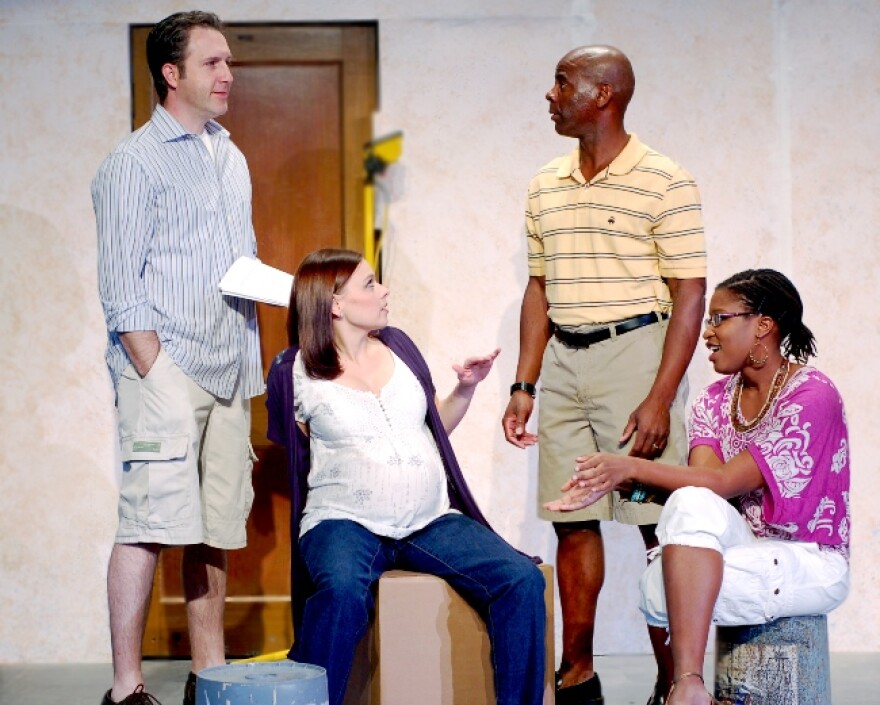This week, the Unicorn Theatreopens the play Clybourne Park, which has the distinction of winning the 2012 Tony Award for Best Play and the Pulitzer Prize. Its two acts take place in the same house 50 years apart, and examine with equal humor and drama all the varying shades within the phrase, "There goes the neighborhood."
A house divided
Playwright Bruce Norris invented the Chicago neighborhood Clybourne Park for both the title and setting. But there are similar neighborhoods all over the country that looked a certain way in the 1950s and then quite different fifty years later. The multi-generational story tackles the subjects of race, racism and gentrification with great wit, insight and humanity, says the director of the Unicorn Theatre production, Joe Price.
“It is about racism. It is about race. It's also about a house and what is a home, and the ghosts or the energy that's in a home of the past owners,” Price says. “A lot of things happen in this house. There are a lot of circumstances connected to this house so I think that complicates the story as well. It's beautifully layered.”
A change in the air

The first act takes place in 1959, where several reactions are erupting to news that a black family has bought a white family's home. After key cosmetic alterations to the set at intermission, act two unfolds in the same house in 2009. The neighborhood is undergoing a groundswell of gentrification, where young white urbanites are buying - and planning to modify - homes that have to now fit their residents' needs. The actors do double duty, playing completely different characters in each act.
Jessalyn Kincaid, who is white, offers her take on what the white characters in the first half might have been feeling.
“I think a lot of ignorance, for lack of a better word,” Kincaid says. “They're very frightened. They're very proud of where they are in the world and they don't want that to change.
“Like any of us, change is difficult, especially when you don't know what it's going to look like. And so I don't think they're trying to be cruel. They just don't want things to be different. Things are okay the way they are.”
Forward march
Actor Mykel Hill, who is African-American, says he relishes the idea of tackling two black characters at two radically different times in America.
“We're talking about jumping right into the 1950's and those roles and those expectations of an African-American male during that time,” says Hill. “You move forward to 2009, there's a lot more freedom there having the ability to move in and out of different roles and enjoy some of the freedom that exists by being an African-American in 2009.”
Offensive lines
While the play does include words and jokes that might be tough to hear, Jessalyn Kincaid says nobody in the play goes unscathed.
“Like it or not, at some point, everyone is kind of under attack,” she says. “Everyone gets offended at some point. Everyone has something said about them, be you a woman, a man, black, white. We even get some Hispanics in there. We talk about Asians. I mean, we kind of run the gamut.
“He (Norris) doesn't solve the problem, he just opens up a dialogue. He asks a lot of questions and whether you agree or disagree or are offended or not, I think you walk away thinking about it, talking about it, which I think should be the goal of theater and the goal of this piece.”
The author, Bruce Norris, acknowledges that the play is in fact inspired by A Raisin in the Sun, the Lorraine Hansberry classic about an upwardly mobile black family. Denzel Washington is bringing a production of this work back to Broadway in the spring.
Clybourne Park, December 4-29, Unicorn Theatre, 3828 Main Street, Kansas City, Missouri. 816-531-7529.



